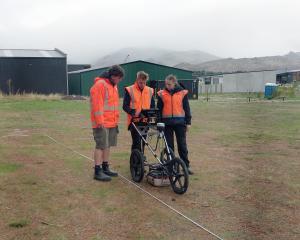The seven-year wrangle began in 2006 when the New Zealand and Otago Fish and Game Councils sought an amendment to the existing water conservation order on the river.
They wanted the potential for dams to be ruled out but Pioneer Generation, which had plans for a hydro dam on the river, wanted the option left open.
Since then, a special tribunal, set up by the Ministry for the Environment to hear views on the matter, heard evidence and the tribunal voted in favour of the amendment, to protect the habitat of a rare native fish.
The Central Otago District Council and Otago Regional Council submitted the amendment was unnecessary as any development would have to go through the resource consent process, which would provide adequate controls.
The tribunal's decision was appealed to the Environment Court by Pioneer, by the fish and game councils, which wanted other characteristics of the river recognised, and by Whitewater New Zealand, which wanted the river's value to kayakers noted.
The court heard the matter in November and its report was made public last month.
Two of the three commissioners - Kathryn Edmonds and John Mills- recommended a ban on damming.
They said a dam would cause a significant adverse effect on the landscape and also affect the kayaking amenity.
Judge Jon Jackson took a different view and recommended the potential for a small dam on the river be left open, subject to certain conditions.
Both series of recommendations - the majority view by Commissioners Edmonds and Mills and the minority view by Judge Jackson have been forwarded to Ms Adams, who will make the final decision.
An Environment Court spokeswoman said the period for any appeals to the High Court against the Nevis River decision had closed and none had been lodged.
A spokesman for Ms Adams said she was considering the environment court findings, together with advice from the Ministry for the Environment. It was difficult to estimate when a decision would be made, he said.
As a water conservation order was a form of regulation, any change to it would have to be considered by Cabinet.
If the change was approved by Cabinet, it had to be signed by the Governor-General and gazetted. There was no right of appeal on the minister's decision, although it was subject to judicial review, the spokesman said.











